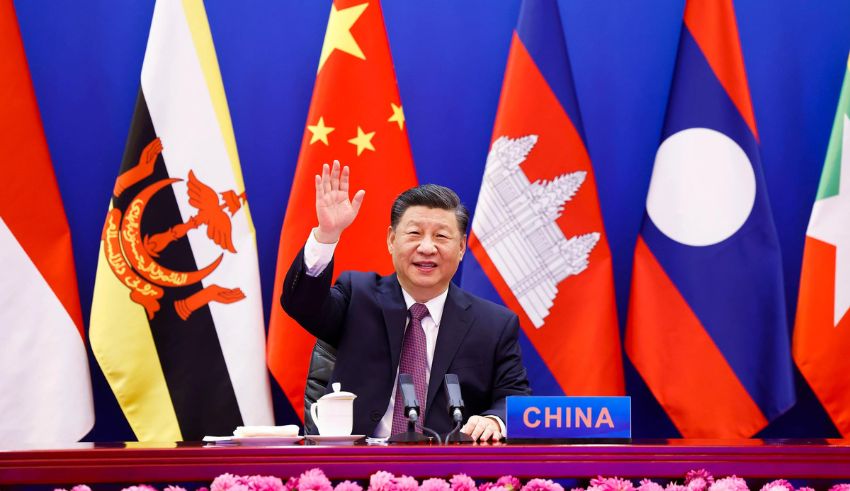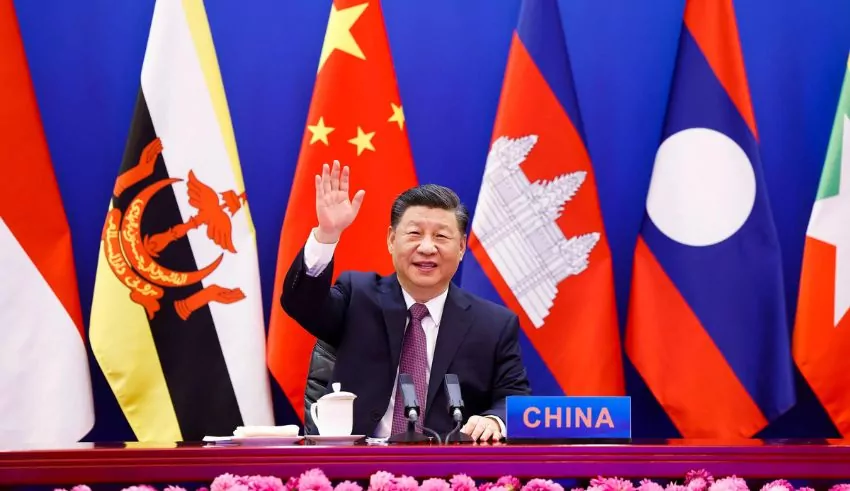

(C) South China Morning Post
The recent diplomatic activities of Chinese Foreign Minister Wang Yi during his visit to Jakarta for the East Asia Summit Foreign Ministers’ Meetings and the ASEAN Regional Forum are examined in this article. While Wang tried to allay regional worries about China’s forceful rise and rivalry with the US, ASEAN member nations reacted to his comments with caution and distrust. The essay explores Wang’s suggestions for pragmatic collaboration and regional security, the difficulties in the South China Sea issue and the requirement for improved US-China relations to ensure Indo-Pacific stability.
Wang Yi engaged in bilateral discussions with counterparts from the US, India, and Russia during the meetings in Jakarta, reiterating China’s commitment to serving as a partner in the region’s development. In line with Xi Jinping’s Global Security Initiative, which attempted to undermine US security supremacy in favour of a China-led model, he suggested fostering “common,” “cooperative,” and “universal” security. To foster confidence among the region’s nations, Wang also stressed practical cooperation in anti-piracy, humanitarian aid, disaster relief, and climate change.
Wang’s speech at the ASEAN+3 meeting focused on the economic side of China’s partnership. It urged the participating nations to support opening up, speed up regional integration, and recognise China’s leading position in creating reliable and adequate supply and production chains. He highlighted China’s contributions to programs like the Electric Vehicle Ecosystem and the ASEAN Emergency Rice Security Mechanism, positioning China as a potential partner in the fight against poverty and for the empowerment of rural areas.
Because there hasn’t been much movement in settling conflicts in the South China Sea, ASEAN member countries have remained apprehensive despite Wang’s pledges. Concerns about regional competition and security anxiety were aroused by the 20-year delay in the Code of Conduct and the Philippines’ recent commemoration of seven years since the Permanent Court of Arbitration judgement against China.
The high-level conversation between US Secretary of State Antony Blinken and Wang Yi was encouraging, but it also emphasised the tense US-China ties. To maintain stability in the relationship, Wang’s message to the US underlined the necessity to handle high-impact events like Taiwan-related contingencies and conflicts more logically.
Countries in the region, particularly ASEAN members, see improving US-China relations as essential to maintaining peace and stability. They look for diversity in alliances and anticipate that China will foster trust by successfully enforcing the Code of Conduct in the South China Sea.
The article concludes that while considerable powers like China and the US take a more strategic stance on regional issues, regional nations seek to maximise economic gains. For the states in the region, this dissonance poses a geopolitical problem, but it also offers a chance for dialogue. Stability and cooperation in the Indo-Pacific area will depend on balancing economic interests and security issues.
If you happen to breathe K-drama, then your 'May 2025' will most likely be well-rendered into a month! Romantic sagas,…
Since yesterday, May 2, 2023, at the Mall of Asia Arena in Pasay, Ahtisa Manalo has demonstrated her brilliance by…
“you’re nothing but a trying hard copycat” Character- Lavinia Arguelles Film- Bituing Walang Ningning (1985) Context- Lavinia confronts her rival…
During the first months of 2025 WWE released several prominent wrestlers who were part of their talent roster. Professional wrestling…
Seventeen year old sprint prodigy Rin Kubo continues to make athletic history in Japan. At the Shizuoka International Athletics Meet,…
NextRise 2025-the biggest startup and tech event in Asia-is ready to take place in Seoul on June 26-27 at COEX,…
This website uses cookies.
Read More